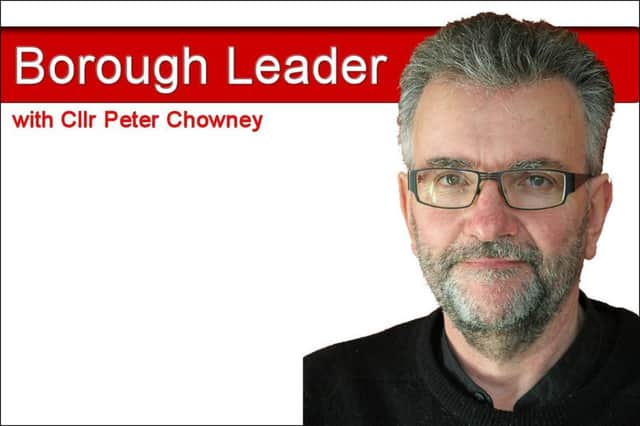Money, money, money'¦


Since 2010, the ways councils get government funding have changed. Some of the grant has been replaced by the council being allowed to keep part of the business rates it collects. But taking this into account, the total funding we’ve received for 2018/19 is £3.9m. In 2010/11, this was £12.7m – adding up to a cumulative loss of £45m.
Although the depth, scale and speed of these funding reductions has made service cuts inevitable, there are other ways the council can get income. We’ve been very successful at winning competitive funding to enable, for example, seafront improvements, grants to small businesses, and cultural projects such as the ROOT1066 festival. But money from these sources can only be spent if specific things – it can’t be used to make up for cuts in mainstream funding. So we need more ways to generate income.
Advertisement
Hide AdAdvertisement
Hide AdAnd we’ve been doing just that. From a baseline in 2016/17 to the 2018/19 budget, the council will have generated an additional £2.2m income, a figure that was described as a ‘brilliant achievement’ in an external review of the council’s financial position. A lot of that has come from property purchases. These include the Sedlescombe Road Retail Park, the Bexhill Road Retail Park, and the council’s own offices at Muriel Matters House on the seafront. That allowed us to bring council services under one roof and rent the town hall to the county council for the registrar’s office, generating extra income. The council will be looking at further commercial property purchases, as they become available. Currently, we’re only looking at properties in Hastings, but we could look further afield in the future.
The council has also set up a housing company, to purchase and develop housing. With the right properties, this could bring in significant income in the future. But we’re also looking at how purchasing housing could save the council money on bed and breakfast accommodation, a bill that’s set to rise to over a million pounds during 2018/19, because of the national homelessness crisis.
But the big earner could be energy generation. By setting up a local supply network and generating electricity locally from sustainable sources, the council could generate up to a third of the town’s electricity needs. Not only would that create a very substantial income for the council, it would also provide local homes and businesses with electricity significantly more cheaply than from national suppliers.
These are not the only options - the council is looking at other ways to generate income. However, all these income-generating schemes involve significant capital investment, so they are not without risks, which must be carefully evaluated. But overall, I believe the risks associated with the huge service cuts that would otherwise be necessary, and the negative impact that would have on our town’s economy and its population, would be far greater.
Advertisement
Hide AdAdvertisement
Hide AdIn an ideal world, local government would be properly funded and could get on with the business of providing good quality local services. Until that happens, we’ll continue to focus our efforts on generating income in other ways, to make sure further service cuts can be minimised.